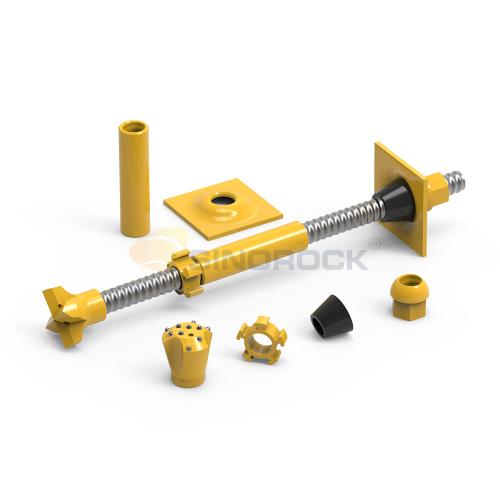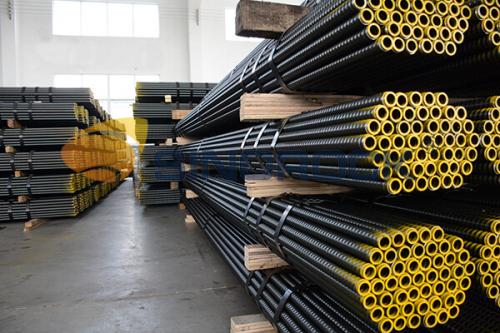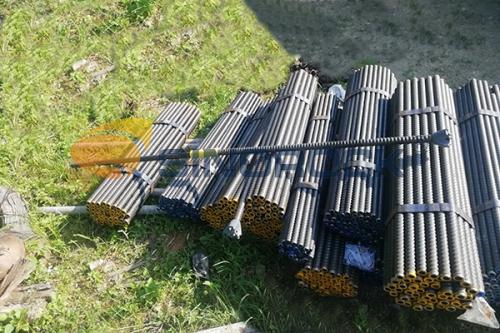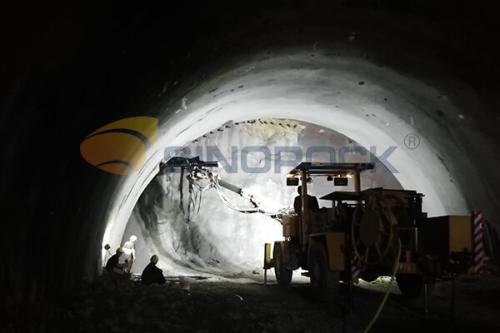What
Is Prestressed Anchor? A Basic Guide
The
prestressed anchor is mainly composed of free section and anchorage section,
the free section refers to the part passing through the unstable slope body,
and the anchorage section refers to the part located in the stable soil body.
The main function of prestressed anchor is to reduce the sliding force of soil
and improve the stability of soil. This blog will explain the basic concept and
classification, working characteristics, mechanical action and support
structure of prestressed anchor.
Basic
Types Of Rock Anchor Bolts
Prestressed Anchor
prestressed
anchor is also called anchor, anchorage. Prestressed anchor is a kind of
tensioned bolt (system) which transmits tension to stable or suitable rock and
soil mass. It is generally composed of anchor head, anchor free section and
anchor anchorage section.
Low Prestressed Anchor
The
low prestressed anchor is a type of prestressed bolt with a tensile capacity of
less than 200KN.
Non-tensiled bolt
Non-tensiled
bolt is also known as rock bolt. The non-prestressed rock bolt is the
full-length bonded or frictional rock bolt without applying prestress in the
stratum.
Working
Characteristics of The Prestressed Bolt
l After stratum excavation, it
can immediately provide active support resistance, effectively control the
deformation and development of stratum and anchorage structure;
l Improve the stress state of
rock and soil mass;
l Improve the shear strength of
weak structural plane and potential slip plane, and improve other mechanical
properties of the stratum;
l The position, direction,
density and construct timing of the bolt can be conveniently set and adjusted,
and the best stability effect can be obtained with the minimum support
resistance.
l Good ductility can
significantly improve the ability of anchorage structures to resist earthquake
and dynamic action.
l The structure and strata can
be closely interlocked together to form a common working system;
Mechanics
Effect of Prestressed Anchor
l Prevent shear failure of the
formation

l Control the deformation of
underground tunnels and caverns and prevent collapse.

l Resist vertical displacement
of the structure

l Resistance to inclined and
collapse

Prestressed
Anchor Support Structure
1.
Tensile
Anchorage
The tensile anchorage
mainly relies on the fixed section to provide enough pull-out resistence to
ensure the application of prestress. Generally, cement mortar is used to
consolidate the anchor cable body of anchorage section in the stable part of
rock mass. According to whether the tensile section is bonded, it can be
divided into full-length bonded type and free type.
1.1.
Bond
Type
Firstly, air or water
drill is used to drill the whole length and grouting is carried out in the
fixed section. This is followed by tensioning and tensioning section grouting,
also known as secondary grouting bolt. The characteristic of this type of
support is that the prestress can be maintained even if the anchor head fails.
1.2.
Free
Type
The whole length is
drilled by air drill or water drill first, and then grouting, or grouting while
drilling. It is not necessary to add casing outside the fixed section, but it
is necessary to add casing outside the tension section. The tensioned bolt is
not directly bonded to the anchor solid or adjoining rock, so it will not
affected when it is freely telescopic. The characteristic of this support form
is that the local stress caused by the deformation of local rock mass can be
distributed on the whole tensioning section.
2.
Pressure
Anchorage
The
stress mechanism of the pressure anchorage is different from that of the
tension anchorage. Through the unbonded hollow bolt body, the tension load is
directly transferred to the drill bit, so that the grouting body changes from
the traditional tensile stress state to compressive stress, which is suitable
for the large head of the thin bars. The characteristic of this support
structure is that the whole length of the rod is wrapped with cement slurry,
which has a good anti-corrosion effect.
Summary
Above
is the answer to the question of what a prestressed bolt is. In general, the
anchorage of hard rock is suitable for tension prestressed anchor, while for soft
rock anchorage, pressure dispersed or tension dispersed prestressed anchor is
recommended. The construction materials needs to be selected according to the
specific situation of rock strata.








Comments